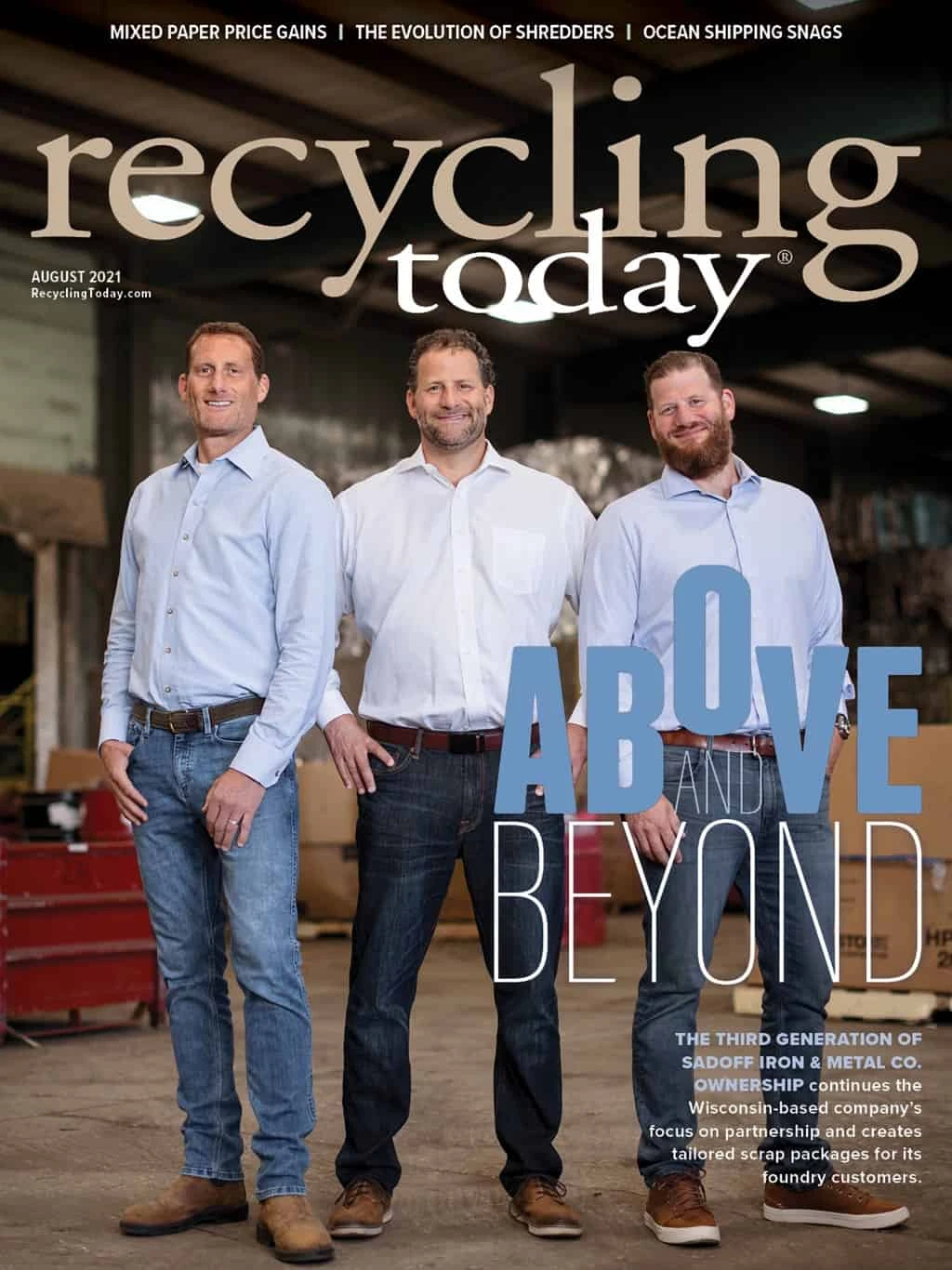Plastic scrap markets continue to enjoy boom times, though polyethylene terephthalate (PET) has given back some of the gains in pricing it made earlier this summer, says Paul Bahou, president of Global Plastics Recycling in Perris, California.
“The market seems to have stabilized,” he says, adding that pricing had been increasing before dropping a bit.
Bahou says the decline in PET bottle bale pricing was a relief as it is one of many costs that are increasing. He says the cost of trucking has more than doubled on lanes from Central California to Southern California. “It’s shrunk my bubble for buying and selling.”
Demand is outpacing supply, Bahou adds. His company’s production has been limited by staffing issues. He says Global Plastics Recycling has had to reduce production from six to five days a week to address gaps in staffing.
“The big mover is HDPE natural, and the big influence is it’s the universal grade that can produce different end products because of the clear color.” – a MRF operator in the Northeast
Bahou says his company is sold out of finished material. “Part of that is not producing as much as I could, but I was sold out before I had to crunch production.”
Bales are in tight supply, he says, and that is amplified by interest from buyers for companies in Mexico and Europe.
Bahou predicts that PET bale pricing is more likely to drop than to increase in the second half of the year. “But you never know. It may start jumping back up because of the labor shortage,” he says. “My best guess is that it will drop but slower than it rose. That is wildly subject to change. It used to be China that destabilized the California market. Now it’s Mexico.”
Pricing for high-density polyethylene (HDPE) continues to climb upward.
“The big mover is HDPE natural, and the big influence is it’s the universal grade that can produce different end products because of the clear color,” a material recovery facility operator in the Northeast says. While natural HDPE is king, he says “pricing is higher than normal” for colored HDPE, polypropylene (PP) and PET.

On the West Coast, Ajit Perera, vice president of postconsumer operations at Talco Plastics, Long Beach, California, describes supplies of natural and colored HDPE bales as tight. “Prices continue to ratchet up.”
He says natural HDPE bales are selling in the $1 per pound range, while colored HDPE bales are selling for more than 50 cents per pound. “At these numbers, the people who are buying it are seriously committed to using [postconsumer resin],” he says, noting that recycled natural HDPE is roughly 75 percent more expensive than virgin HDPE.
“In my opinion, you cannot sustain these kinds of numbers,” Perera says. “It’s not possible.”
He says Talco has been able to pass along to its customers some of the additional costs associated with rising bale, labor and transportation prices. The company’s freight costs have increased by three to four times.
As is the case with Global Plastics Recycling, Perera says labor issues are affecting his company’s production, noting that Talco has had to cut shifts. He says the company has increased wages and paid bonuses to hire and retain staff.
Perera says that if collection of HDPE for recycling increased, it would provide the supply needed to meet the market demand that exists.
Tamsin Ettefagh with PureCycle Technologies in Orlando, Florida, said something similar in reference to rising PP scrap prices during a WasteExpo session in late June.
“Supply needs to increase to make the economics work,” she said. “I think it will all level out once supply increases.”

Explore the August 2021 Issue
Check out more from this issue and find your next story to read.
Latest from Recycling Today
- Orion ramping up Rocky Mountain Steel rail line
- Proposed bill would provide ‘regulatory clarity’ for chemical recycling
- Alberta Ag-Plastic pilot program continues, expands with renewed funding
- ReMA urges open intra-North American scrap trade
- Axium awarded by regional organization
- Update: China to introduce steel export quotas
- Thyssenkrupp idles capacity in Europe
- Phoenix Technologies closes Ohio rPET facility





